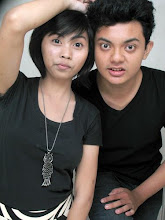Flores
Flores has one of the rare and endangered animals in the world of Varanus komodoensis or better known as the giant Komodo. Raptil lived on the island of Komodo and Rinca Island, both located in West Manggarai, West Flores. In addition to the island of Komodo and Rinca Islands are included in the National kawasanTaman Komodo, Flores also has one more National Parks located in Ende, Flores is the National Park. The main attraction is Lake National Park Kelimutu his Three Colors are always changing the color of lake water. In Riung, northern district Ngada, there are 17 marine parks are as beautiful as the island of Bunaken marine park in Manado.People who come from Flores often called the Lamaholot, because the language used Lamaholot tribal language.
Social aspects: social coating depends on the beginning of the first arrival of people, because it recognized the existence of a master who decides everything, dividing the land to the tribe Mehen who arrived later. Followed by a tribe Ketawo acquired the rights to live and cultivate land from tribal Mehen. Mehen tribes to maintain their existence is judged as a landlord, be they warriors - warriors who helped the tribe Ketawo role.
Economic aspects: The livelihoods of the people of Flores are the main visible in the expression as: Ola monument, here Happen, ILua Watanabe, Gere Kiwan Pau overwhelmed heka ana, Geleka lewo gewayan, Toran murine laran (Working in the field, Slicing wine, shelled, work in the mountains service / family member lives, receiving foreign guests.
Source readings:A. Melalatoa, M. Jonah. Of 1995. Encyclopedia Ethnic Groups in Indonesia. Jakarta.Department of Education and Culture


0 comments:
Post a Comment